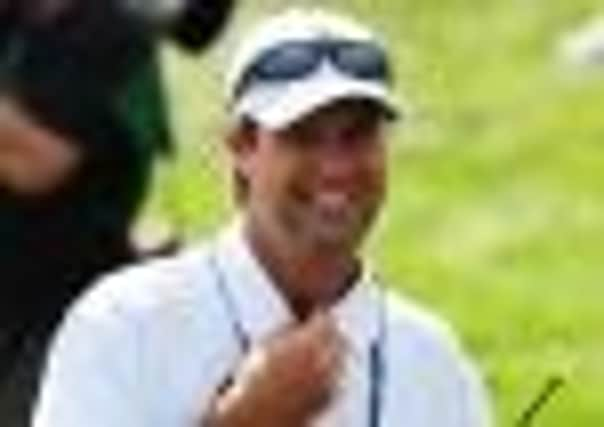Love will look to build triumph using Azinger’s blueprint


JUST as Seve Ballesteros and Jack Nicklaus are two names synonymous with the Ryder Cup for their part in helping make it what it is today, so Paul Azinger’s name should be similarly lauded.
Azinger has arguably done more than any other winning captain this century to shape the destiny of this storied event.
Advertisement
Hide AdAdvertisement
Hide AdNot only did his captaincy of the only American victors this century help reignite a passion for the contest across the pond, the manner in which he moulded that 2008 team also changed perceived wisdom for all time.
The United States, for so long the dominant force in the biennial dual, had lost three straight matches, their last win coming at the controversial ‘Battle of Brookline’ in 1999.
Enthusiasm for the event was on the wane as the supposed best golfers in the world time and again fell to the tight-knit mentality of their less-vaunted opponents.
Azinger sought a fresh approach to the match at Valhalla four years ago.
Advertisement
Hide AdAdvertisement
Hide AdHe brought in radical changes to the qualifying system, doing away with the dated US system of counting each tournament in the intervening two years, and doubling his wild card selections from two to four to fill his team with more in-form players.
But his most sweeping reform involved something the renowned American golfer took from the world of business and the military, not golf.
Azinger put his 12 golfers into three ‘pods’ of four based not on whether they were compatible ball strikers or of an equivalent standard at putting, but on whether their personalities matched.
Azinger wanted people who would give their all for their three team-mates in their ‘pod’.
Advertisement
Hide AdAdvertisement
Hide AdBlending personalities rather than golfing attributes worked to perfection.
A united USA defeated Nick Faldo’s European team by 16.5 points to 11.5 points.
In order to win the Cup back at Medinah this week, 2012 captain Davis Love III looks all set to follow in Azinger’s radical footsteps.
He has not come out publicly and said that he will copy the formula, but at his recent press conference to announce his four wild card selections, one throw-away line buried deep in the transcript hinted at his thought process.
Advertisement
Hide AdAdvertisement
Hide Ad“We made our picks based on pairings,” said Love, who overlooked form players such as Hunter Mahan and Nick Watney for Steve Stricker, Brandt Snedeker, Jim Furyk and Dustin Johnson.
Love’s selections were a tacit nod to the Azinger template.
At Medinah for the 39th Ryder Cup, the 1997 US PGA champion is emphasising relationships over form. Like Azinger, he wants his players to have the mentality that they will ‘die’ for each other, as has been the perception about past European teams who have lifted the Cup.
Who ever reigns triumphant at a Ryder Cup, their team unity, no matter how strong it really was, will always be cited as a major reason.
That bond between players is often looked upon as crucial in whether a certain individual holes or misses a vital putt.
Advertisement
Hide AdAdvertisement
Hide AdIf the Americans regain the Cup next Sunday night, it will owe a lot to the successful blueprint Azinger laid down just four years ago. His contribution may not resonate as greatly as the ones made by Ballesteros and Nicklaus, through their energy for the Ryder Cup, their ability, their sportsmanship and their captaincy.
However, in the manner it has shaped the future and how the American team prepares to match the European unity, Azinger’s will has the potential to shape the future of these great contests.